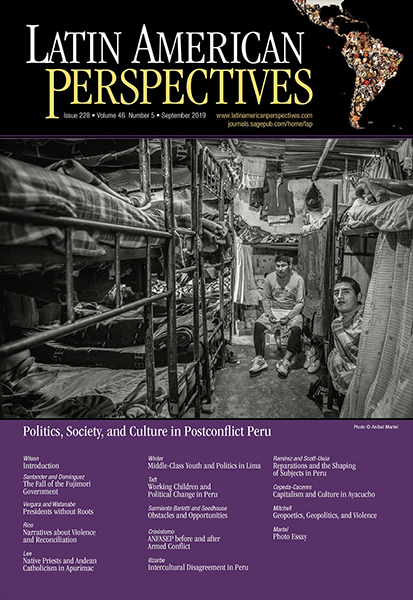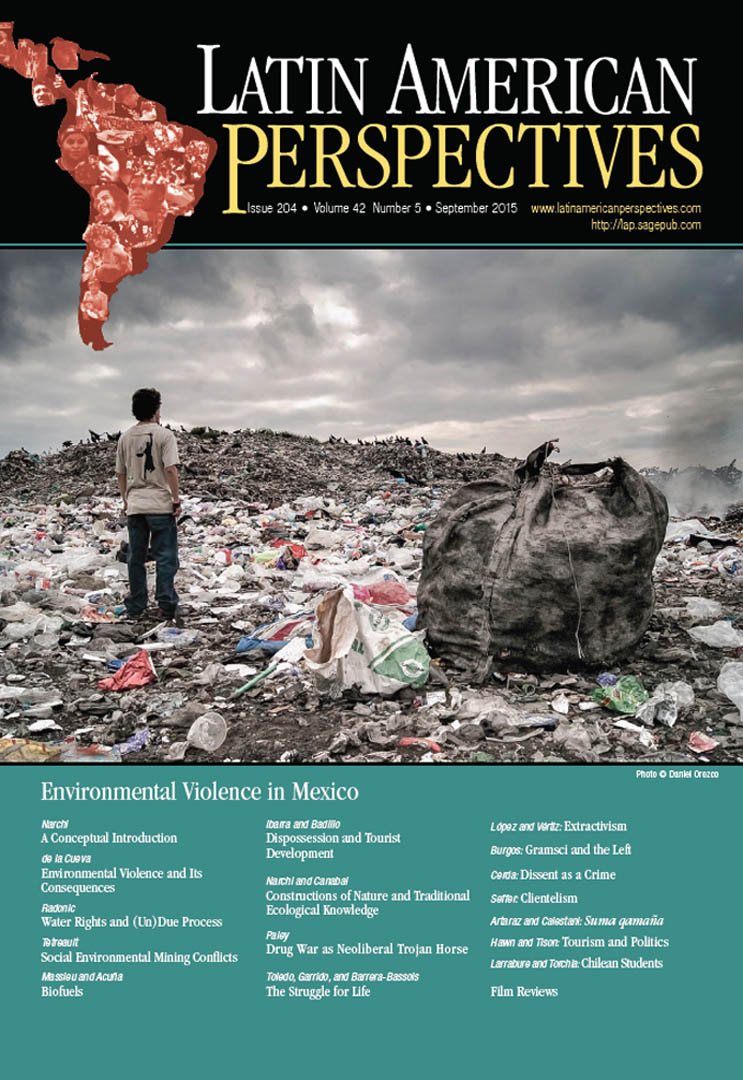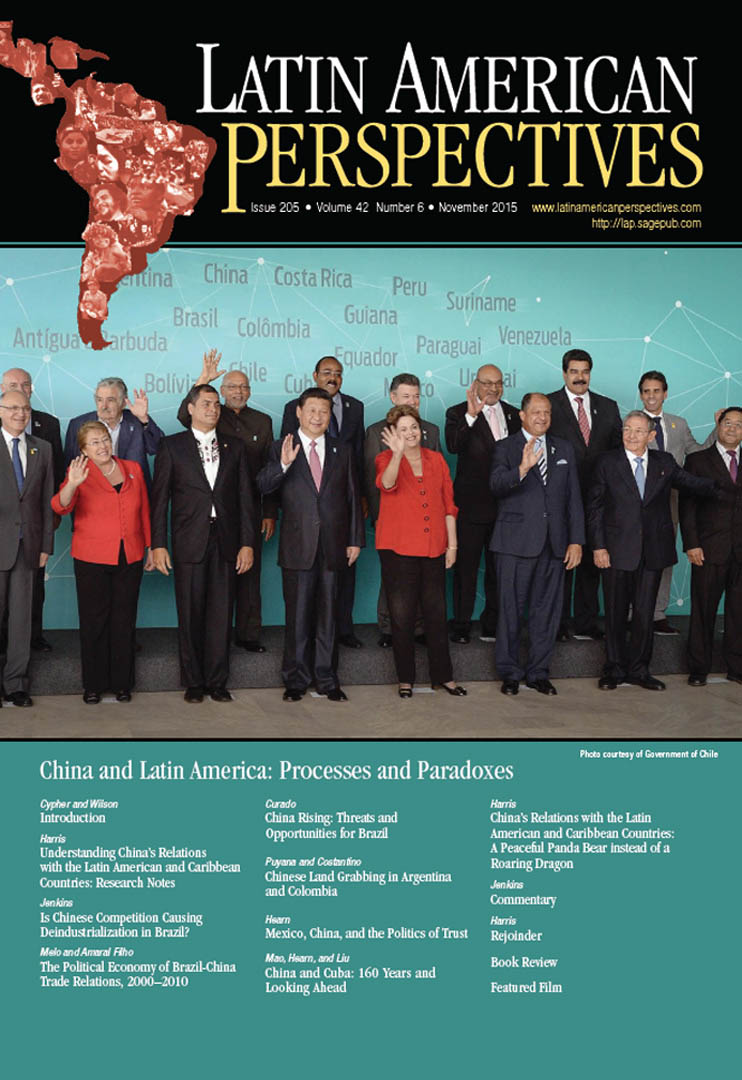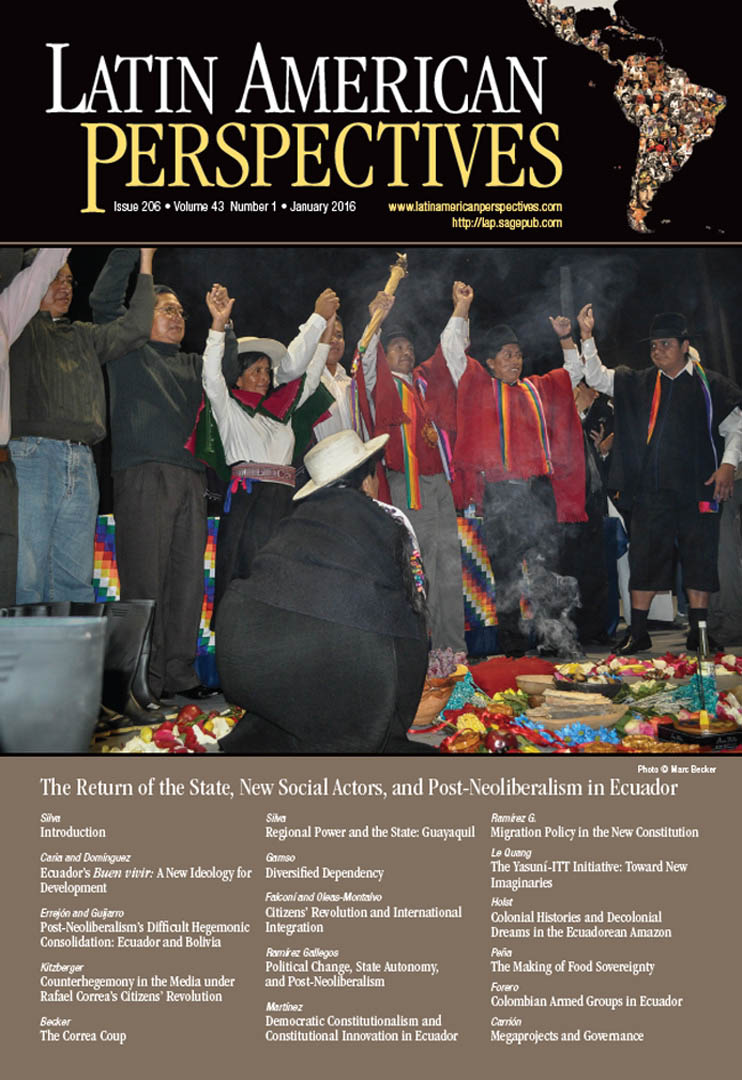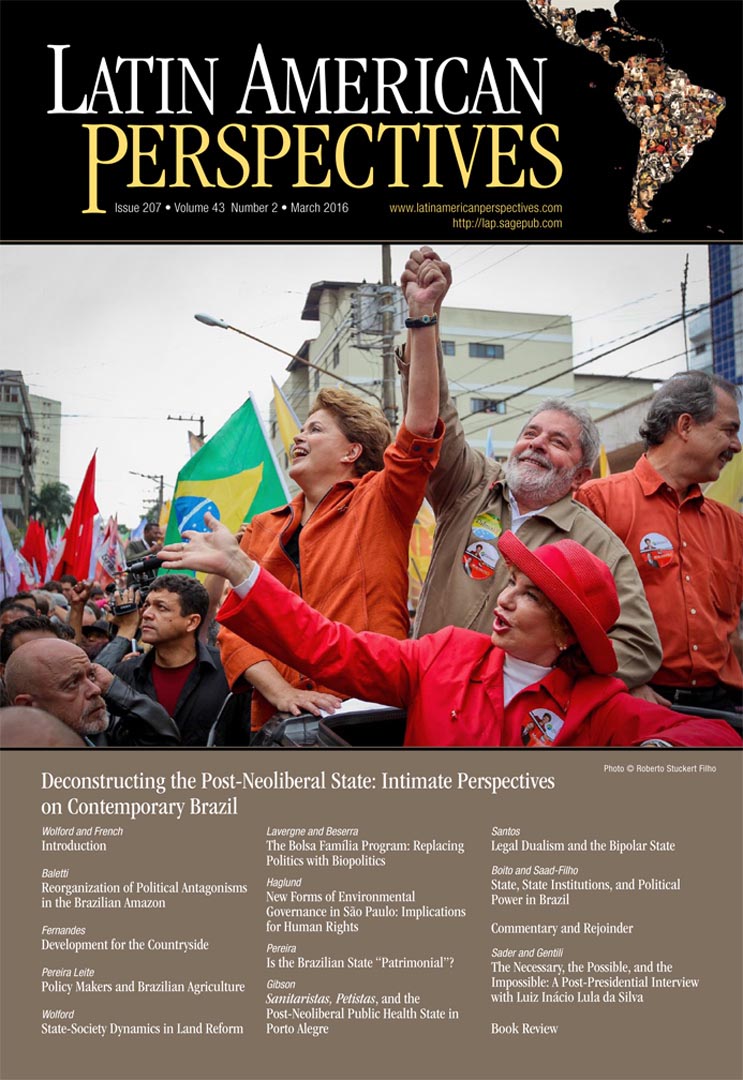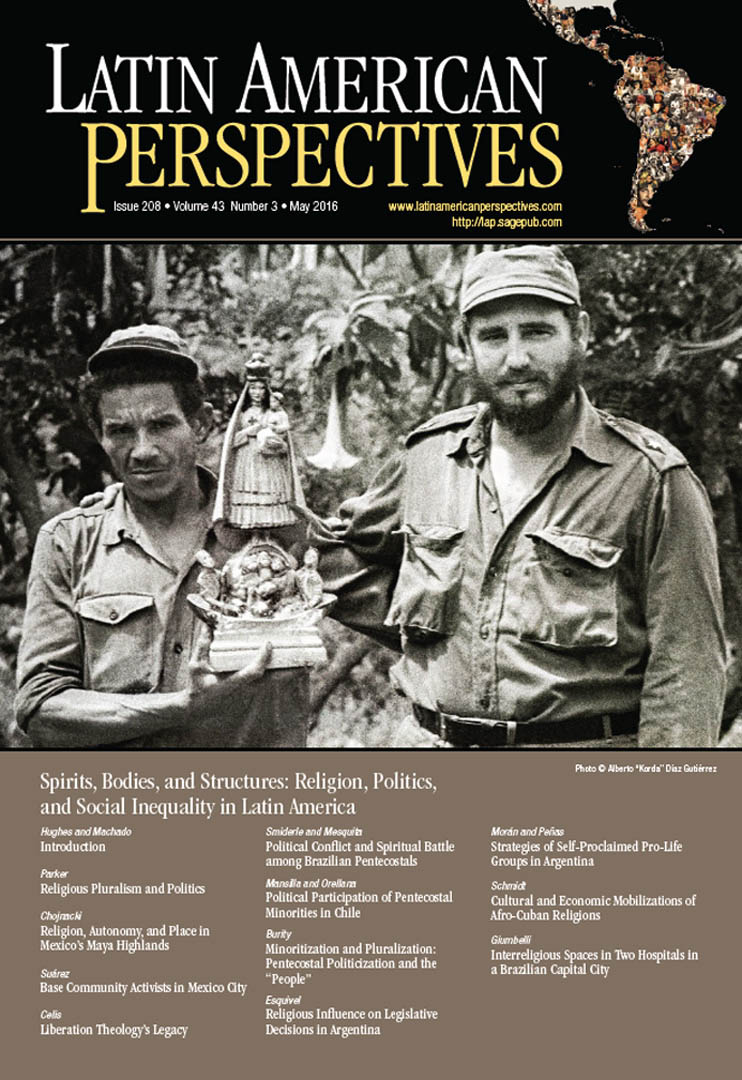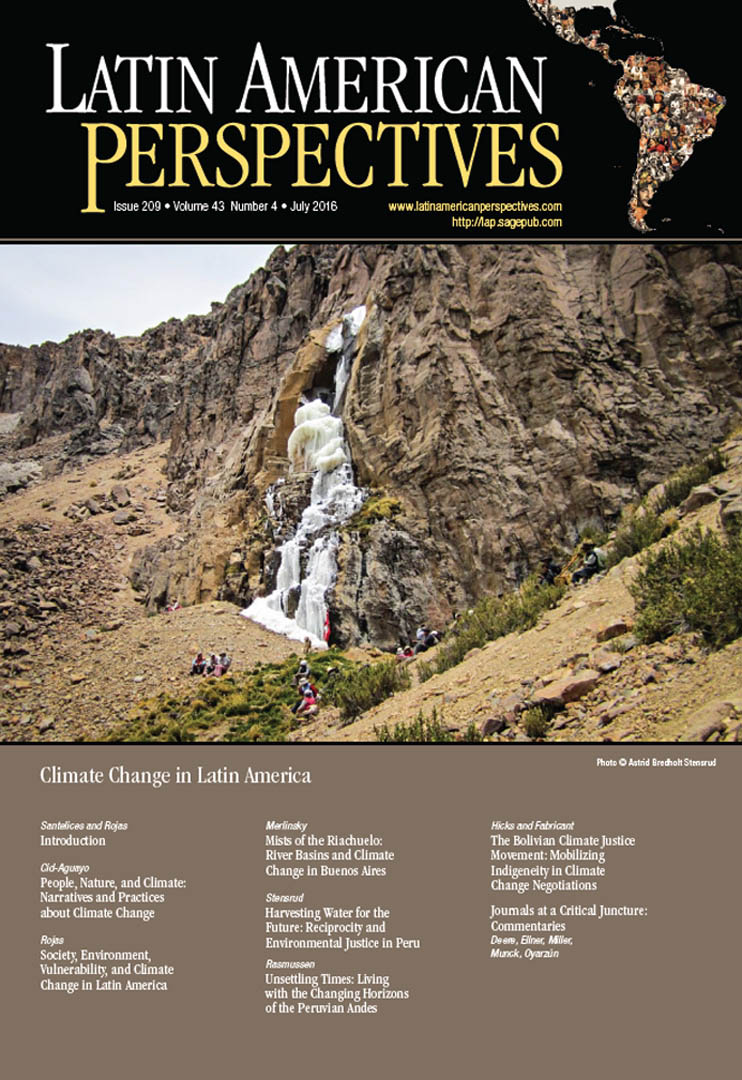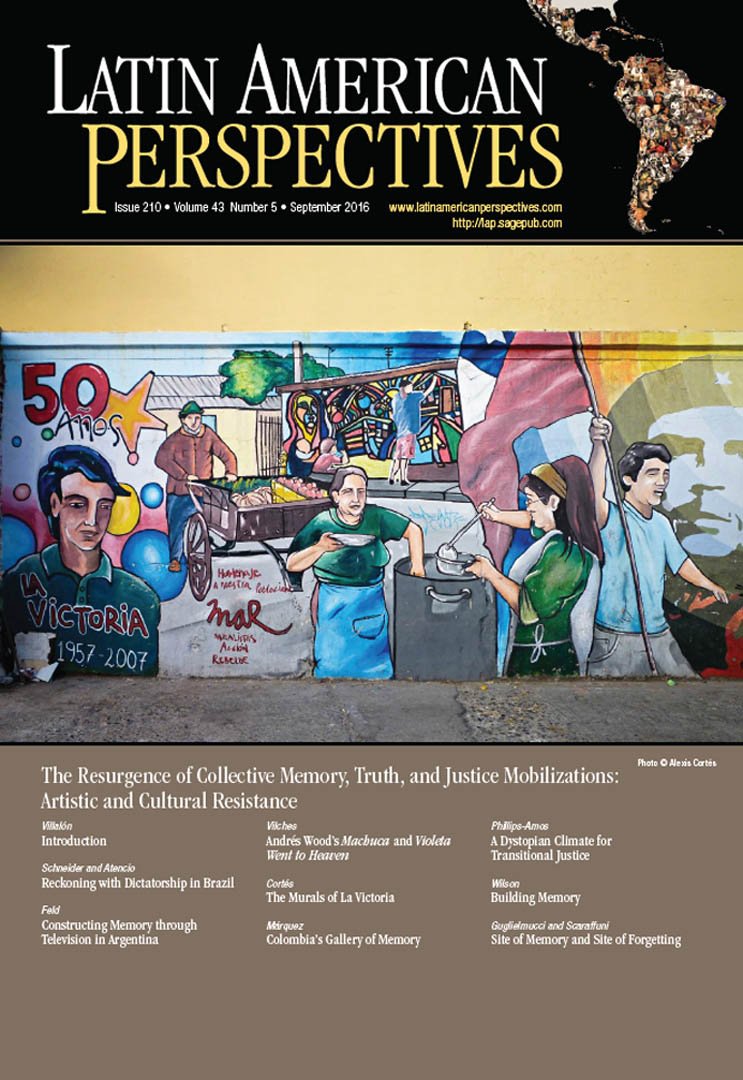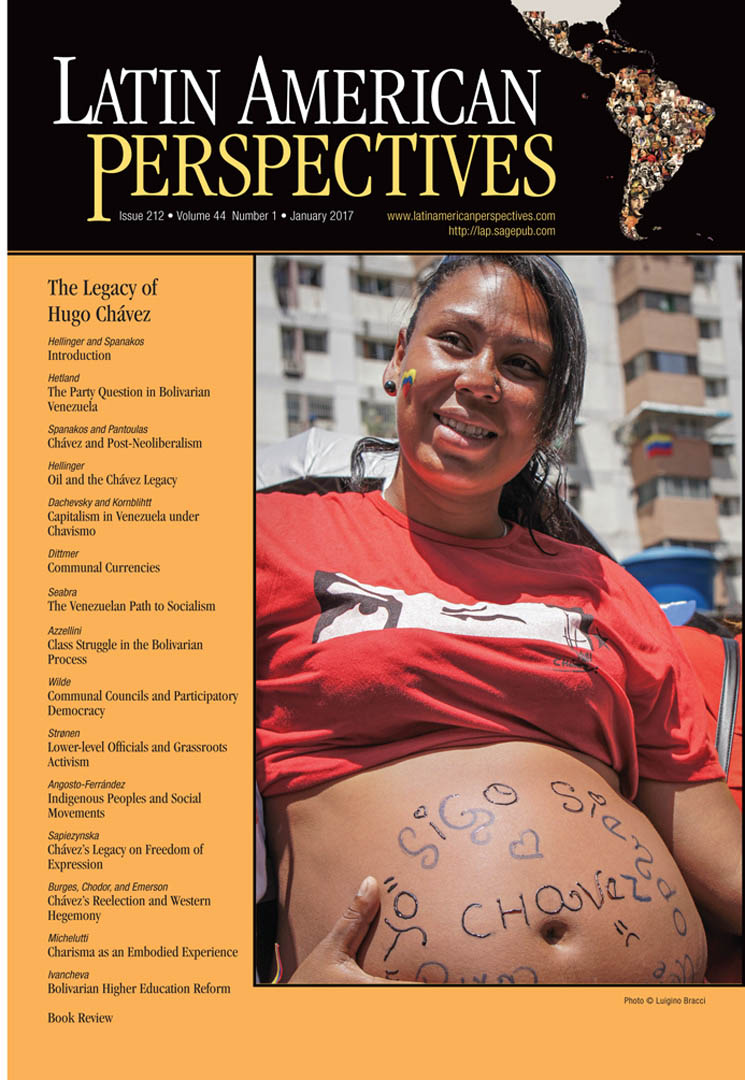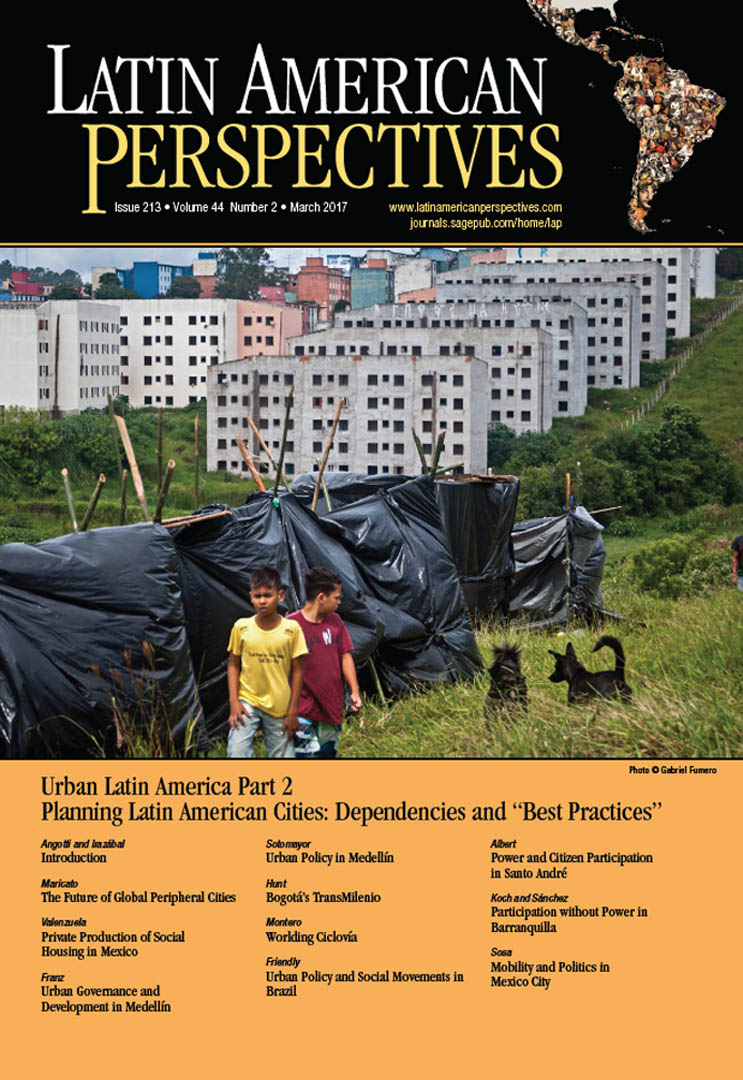Politics, Society, and Culture in Postconflict Peru
Sept 2019 Issue editor: Kristi M. Wilson This issue of Latin American Perspectives focuses on the post-conflict period from Alberto Fujimori’s resignation in 2000 to the present, thus, challenging some of the popular notions of Peru as an exemplar of post-conflict reconstruction. The essays herein addresses important contributing factors to the Peruvian post-conflict landscape such as: questions of democracy and authoritarianism; extractivism, neo-extractivism and inequality among Peruvian indigenous communities; post-conflict development programs and initiatives; post-conflict reparations programs, the legacy of family planning programs in Peru; and the relationship between indigenous communities and the Peruvian state. TABLE OF CONTENTS | PURCHASE THIS ISSUE


